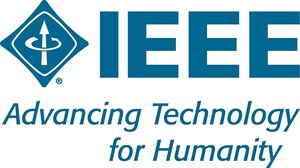NEW YORK, Oct. 15, 2015 /PRNewswire-USNewswire/ -- IEEE, the world's largest professional organization dedicated to advancing technology for the benefit of humanity, today released global survey results indicating a number of challenges in regards to the future of driverless vehicles. Respondents indicated that they wouldn't feel comfortable with driverless vehicles transporting their children, as well as safety and trust in technology being the main barriers to consumer adoption. This survey was developed based on expert commentary that was made during an IEEE roundtable discussion that took place at the University of Southern California on August 28th, 2015. The panelists, from technical, legal and regulatory industries, analyzed the industry in relation to driverless vehicle technology, policy/regulation and law.
The survey polled members of the IEEE Intelligent Transportation Systems society, as well as IEEE's social media communities. Below details how participants responded in regards to the safety of driverless vehicles:
- When asked on a scale from 1-5 regarding their comfort level of having autonomous vehicles pick up/drop off their children (1 being not at all comfortable to 5 being very comfortable), 70.8 percent of experts (e) and 59.7 percent of IEEE social media followers (f) noted a 3 or below on the scale.
- When asked what their main concern was in having driverless vehicles on the road, IEEE social media followers and experts indicated that safety (f=54.3 percent; e=62.6 percent) and trust in technology (f=20.7 percent; e=15.9 percent) were the primary issues.
- [i] When considering a standard process for how driverless vehicles hand back control to a human, visual confirmation was the preferred method for both IEEE social media followers and experts (f=25.9 percent; e= 64.7 percent). An audio signal was also a popular option for experts, accumulating 58.8 percent, followed by a verbal command (49.6 percent) and haptic simulation (47.9 percent).
- When asked to rank several issues from 1-5 (1 being the most important to 5 being the least important) based on what needed to be addressed for driverless vehicles to be considered safe, IEEE social media followers and experts listed driverless vehicle technology as an area that needed further growth (f=2.4; e=2.3). Cyber security (2.4) and privacy (3.2) were also main concerns for IEEE social media followers. Experts listed insurance/liability (2.6) and privacy (3.8) as concerns.
"We want the technologies to come forth, but the priority is to make sure that the public is safe on the roads," said Bernard Soriano, deputy director for the California Department of Motor Vehicles. "Autonomous vehicles present a myriad of technological and practical issues which need to be addressed moving forward. All of these topics are being discussed with the intention of setting forth regulations in the near future to encourage the continued development of the autonomous vehicle industry, while keeping the motoring public safe."
Policy Views
Respondents believe there are other aspects besides the technology that need to be addressed, primarily policy, regulation and liability. Based on the results, participants believe that:
- In addressing who or what would be responsible in the event that an autonomous vehicle got into an accident, the majority of respondents selected two categories: the car manufacturer or the developer of the car's software (54.6 percent respectively).
- Similarly, more than one-quarter (26.0 percent) of experts believe that policy/regulation is the main barrier to mass adoption of autonomous vehicles. Following closely behind was comfort level (25.0 percent), technology (17.3 percent) and liability (13.5 percent). IEEE social media followers indicated comfort level/trust in autonomous vehicles as the main barrier with 30.8 percent. Policy/regulation accounted for 18.8 percent, followed by technology (15.4 percent) and affordability (11.1 percent).
"The key question here is whether the relevant technologies have reached a demonstrated level of socially acceptable risk," explained Bryant Walker Smith, an assistant professor of law at the University of South Carolina and a leading expert on the legal aspects of increasing automation. "Developers, regulators and eventually courts will consider how safe is safe enough, how certain is certain enough, and how this performance should be determined, demonstrated, and documented. These are crucial questions of engineering, law, and public policy, and they necessarily involve not only engineers and lawyers but also the public at large."
Technology Views
Although there are safety concerns, IEEE social media followers and experts do envision a future of utilizing autonomous vehicles in their everyday life. IEEE social media followers are also becoming knowledgeable regarding the different autonomous technologies available.
- [ii] According to the results, 63.1 percent of IEEE social media followers would use self-driving cars for commuting to work, followed by road trips (61.2 percent) and daily errands (60.0 percent). 75.5 percent of experts would use autonomous vehicles for daily errands, followed by daily commuting (74.1 percent) and road trips (60.7 percent).
- As more and more autonomous technologies are being implemented in modern cars, participants were asked to rank several issues from 1-5 (1 being the most important to 5 being not very important) which technologies they believed were the most important moving forward. IEEE social media followers and experts indicated that Lidar/Ridar (sensor technology) (f=2.3; e=2.2) and computer vision (f=2.8; e=2.4), which indicate a strong reliance towards environmental sensing by autonomous vehicles, were imperative to the continued advancement of intelligent technology. Automatic braking (f=2.8; e=3.0), Lane-centering technology (f=3.4; e=3.8) and GPS (f=3.5; e=3.8) rounded out the options.
"Within the last 15 years, we've seen a tremendous amount of growth in technology as well as in consumer acceptance of vehicle automation," stated Wei-Bin Zhang, IEEE Fellow and a program manager at the California PATH program, Institute of Transportation Studies of University of California at Berkeley. "The industry will continue to thrive as consumers become more accepting of vehicle automation, especially as more of these technologies become implemented in modern day vehicles. Just a few years ago, automated parking was a revolutionary new technology – now it comes as a standard option in some production models. This is how I believe driverless vehicles will come to be accepted in the future."
The Future of Driverless Cars
IEEE social media followers and experts indicated that driverless vehicles are only a few years away. The survey found that:
- More than half of IEEE social media followers (61.6 percent) believe that they will be available by 2025. 83.7 percent of experts indicated that driverless vehicles will be available by 2030.
- In terms of how autonomous vehicles will reach the market, IEEE social media followers (86.7 percent) and experts (92.2 percent) believe a continued, gradual inclusion of driverless technologies will be the proposed process, as opposed to car manufacturers immediately adopting these technologies for implementation and sale.
- The United States is projected to be the first country to reach a majority of driverless cars on the road, with more than one-third (32.2 percent) of the IEEE social media followers' vote, followed by Germany (22.6 percent) and Japan (9.6 percent). Experts also indicated the USA would be first to mass adoption with 27.3 percent, followed by Japan (18.2 percent) and Germany (15.2 percent).
"I think that we are absolutely going to be seeing driverless vehicles on the road in the near future, possibly in as little as five years. These vehicles may not be completely autonomous, meaning the driver would be responsible to take control of the vehicle at some point during the ride, but could see full autonomy being reached within a decade," noted Jeffrey Miller, IEEE member and associate professor of engineering practice at the University of Southern California. "Experts from all over the world are contributing to this industry and it will be interesting to see which country is able to offer driverless vehicles first. Environment, regulations and consumer acceptance will be key drivers to its success."
About IEEE
IEEE is a large, global professional organization dedicated to advancing technology for the benefit of humanity. Through its highly cited publications, conferences, technology standards, and professional and educational activities, IEEE is the trusted voice on a wide variety of areas ranging from aerospace systems, computers and telecommunications to biomedical engineering, electric power and consumer electronics. Learn more at http://www.ieee.org.
About This Survey
This survey was launched in response to an IEEE roundtable discussion that occurred on August 28th, 2015 at the University of Southern California that analyzed the autonomous vehicle industry and hosted leading experts in consideration to driverless vehicle technology, policy/regulation and law. The survey was distributed to IEEE's social media community as well as members of the IEEE Intelligent Transportation Systems society. The survey was hosted on IEEE Transmitter (transmitter.ieee.org) and promoted via IEEE's Twitter and Facebook account. Responses were monitored from Sept. 18th – October 2nd. Questions asked participants about their views on the current state and future development of the autonomous vehicle industry. The total number of respondents was 413 (119 ITS members and 294 social media respondents).
Media Contacts:
Andrew Corcione
Finn Partners for IEEE
212-583-5844
[email protected]
Fran Tardo
IEEE
212-419-7750
f.tardo@ieee.org
[i] Respondents were able to list more than one answer for this question, which account for a percentage that exceeds 100.
[i][i] Respondents were able to list more than one answer for this question, which account for a percentage that exceeds 100.
Logo - http://photos.prnewswire.com/prnh/20151015/277301LOGO
SOURCE IEEE
Related Links
WANT YOUR COMPANY'S NEWS FEATURED ON PRNEWSWIRE.COM?
Newsrooms &
Influencers
Digital Media
Outlets
Journalists
Opted In






Share this article